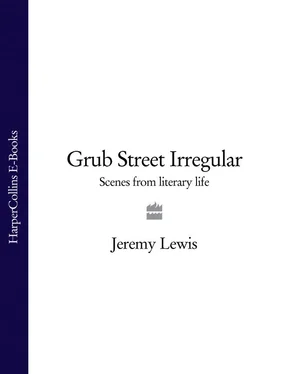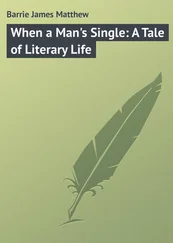However much the editor-cum-writer manqué may enjoy his work, he almost always has one eye on the clock and one foot in the door; and however much he may admire the authors whose books he edits, he is hard-pressed to indulge in the wholehearted suspensions of disbelief that distinguish the genuine publisher from his more apathetic and less driven colleagues. Asked out of hours about the modish new novel, assuming his firm has taken it on, he will probably concede that it’s ‘all right’, but no more, and recommend instead a rereading of Trollope or Turgenev. The most extreme example of the editor as Doubting Thomas was the poet and critic D.J. Enright, my colleague at Chatto for many years. Dennis thought that only a handful of books deserved to be published in any one year, and since he completely lacked the competitive spirit so essential to the successful publisher, he didn’t mind whether we or Faber or Secker or Cape published the few titles he thought worth taking on. A firm run by Enrights would soon die from inanition, publishing far too few books to cover the overheads, let alone make a profit; and since literary men employed by publishers tend to steer clear of the business side of things, this might not occur to them until it was too late.
T.S. Eliot of Faber was the most famous writer-publisher still active in my lifetime; others included C. Day Lewis, Dennis Enright and Andrew Motion at Chatto, Graham Greene and J.B. Priestley at The Bodley Head, Nigel Nicolson at Weidenfeld, and Diana Athill and Nicolas Bentley at Deutsch. They provided useful contacts, they looked good on the notepaper in the days when directors’ names were still listed there, and they could be invoked to impress or overawe recalcitrant authors. ‘I would like you to meet Professor Enright,’ Norah Smallwood of Chatto would declare, summoning the sage from his lair with a peremptory blast on the internal telephone. Dennis, who was almost certainly tamping his pipe or trying to recover from a long lunch in The Marquis of Granby when she rang, would shuffle down the bare, lino-floored institutional corridor, grumbling sotto voce to himself, deliver his views while simultaneously scratching the back of his head and standing to attention, and shuffle back to his office once his services were no longer required (‘You may go now, Dennis’).
Although some of the most interesting books of the last century were published by part-time writer-publishers like Leonard Woolf, John Lehmann and Alan Ross, publishing and writing call for very different attitudes and abilities, not easily combined in a single individual. Ernest Hecht of the Souvenir Press, who has remained in business longer than most, likes to quote Sir Stanley Unwin’s dictum that a publisher’s overriding duty to his authors is to remain solvent; effective publishers like Ernest, are, in the last resort, hard-headed if idealistic businessmen, and as such they are far removed from most authors and editors. As I discovered when researching my biography of Allen Lane, and as Tom Maschler’s ill-advised memoirs make plain, publishers are more interesting for what they do than for what they say or think; whereas writers and academics are prone to, and delight in, indecisiveness and ambiguity, priding themselves on their ability to see all sides of a question and to hold contradictory views at once, the businessman-publisher is, by comparison, uncomplicated, decisive and single-minded.
But I knew nothing of this at the age of twenty-five. What I did know was that working as a minion in publicity departments, and then as a junior editor, was wretchedly badly paid, and that in order to keep afloat – and, in due course, to support a wife, two daughters and an endless procession of cats – I would have to supplement my earnings somehow; still more so since, unlike many of my contemporaries in publishing, I had no private means. I had only been working in publishing for a year when Petra and I got married, and shortly afterwards I began my double life as a reviewer, writing short, anonymous, hundred-word reviews for Michael Ratcliffe on The Times . I acquired my first byline when his successor, Ion Trewin, allowed me to give Peter Greave’s marvellous autobiography The Seventh Gate a full-length review after I had urged him to allot it more than a mere hundred words, and from then on I combined work as a publisher’s editor with as much reviewing as I could manage and acquire; and every month or so, feeling like a dealer in rubber goods or some kind of shady salesman, I would make my way to Gaston’s remainder shop off Chancery Lane with an overnight bag crammed with review copies, and take whatever he gave me with due deference and gratitude. When times were bad I wrote reports for paperback publishers and entries on molluscs and the countries of Eastern Europe for Reader’s Digest Books: a severe discipline in my case, since not only did the facts have to be checked and double-checked, but long sentences, parentheses and subordinate clauses were strictly taboo. I was becoming, perforce, a writer of a kind, and finding my way about the alleys and pubs of Grub Street; but I had no idea what, if anything, I wanted to achieve, and I felt almost claustrophobic with envy and admiration when I read (or read about) those authors who combined reviewing and articles with full-length books as well. Writing books was altogether different, and something I could never aspire to.
Конец ознакомительного фрагмента.
Текст предоставлен ООО «ЛитРес».
Прочитайте эту книгу целиком, купив полную легальную версию на ЛитРес.
Безопасно оплатить книгу можно банковской картой Visa, MasterCard, Maestro, со счета мобильного телефона, с платежного терминала, в салоне МТС или Связной, через PayPal, WebMoney, Яндекс.Деньги, QIWI Кошелек, бонусными картами или другим удобным Вам способом.












